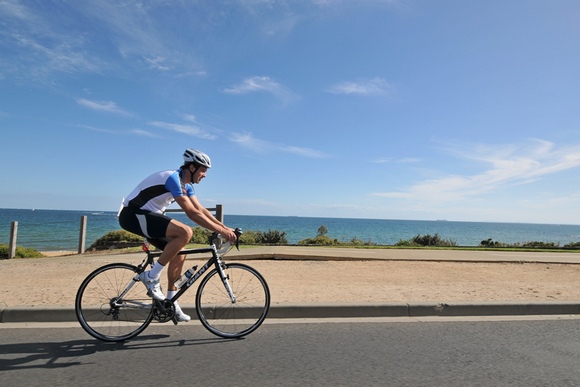
Hamilton (Ontario): A new study led by McMaster University has found that regular cycling can greatly improve mobility in patients with myotonic dystrophy (MD is part of a group of inherited disorders called muscular dystrophies), which is a genetic disease that causes muscle degeneration.
The results of the study were published in the journal, 'Journal of Clinical Investigation'.Senior author Mark Tarnopolsky said that cycling for 35 minutes three times a week for 12 weeks led to a 32 per cent increase in overall fitness in people with MD.
Also Read: Coffee a boon for sportspersons, finds study
Patients who took part in the study also saw a 1.6-kilogram increase in their muscle mass and a two per cent reduction in body fat. They were also able to walk an extra 47 metres in six minutes when tested by researchers at the end of the 12-week trial.

Tarnopolsky's team recruited 11 patients with MD to examine how effective cycling was in restoring and maintaining their physical health. Researchers also studied the underlying molecular mechanisms through which exercise strengthens the skeletal muscles, which can be severely weakened by MD.
28 Year-Old Becomes A Rich Man By Trading OnlineOlymp Trade"Exercise really is medicine - we just need to get the message out," said Tarnopolsky, a professor of the departments of paediatrics and medicine at McMaster.
Also Read: Strength training could benefit heart health
"Myotonic dystrophy is a progressive condition that will impair your mobility and can put you in a wheelchair. There is no cure for it and only regular exercise helps you achieve better function," he added.
He also said that some patients with MD are even advised by their doctors not to exercise, for fear of making their condition worse, but that is now proven false.

The study authors said previous research on mouse models showed a range of similar physiological benefits from regular exercise.
Tarnopolsky said that MD is the most commonly diagnosed type of muscular dystrophy in adults and the second most prevalent of all muscular dystrophies.
MD's main symptoms include severe skeletal muscle atrophy, general muscle weakness, reduced lung capacity and impaired heart function. Other symptoms may include cataracts, endocrine disorders including diabetes and gastrointestinal disorders. Roughly 19,000 Canadians live with either MD or another type of muscular dystrophy, Tarnopolsky said."MD itself is really a form of accelerated ageing," concluded Tarnopolsky. (ANI)







